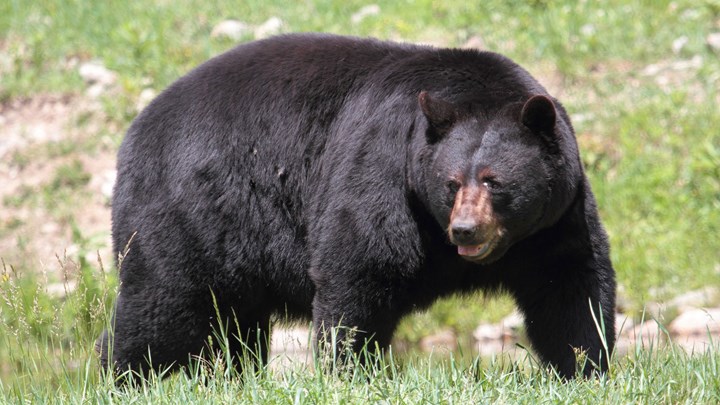
by Cody McLaughlin - Tuesday, June 20, 2023

Despite Connecticut’s expanding black bear population and reports of bears breaking into homes in record numbers, Connecticut lawmakers failed in a recent vote to establish a limited bear hunting season in the northeastern state after a campaign by anti-hunting extremists led by the Connecticut Sierra Club, which continues to work to shut down bear hunting. As readers of this website are aware, Sierra Club is the same group behind the extremist movement to shut down black bear hunting in in nearby New Jersey and elsewhere.
Connecticut legislators would do well to recall the high-profile horror story that raised eyebrows across the nation in October, when a 10-year-old Connecticut boy was attacked in his grandparents’ yard and dragged away by a black bear before the bear was killed by law enforcement officers. What’s worse, the offending bear was perfectly healthy, had no cubs and was fattened on the finest of northeastern garbage, eliminating the common refrain of anti-hunters who say that cubs and starvation are the only reasons black bears attack humans.
As a matter of fact, of the estimated 1,100 bears in Connecticut, an eye-popping 67 bears broke into houses in 2022, accounting for incidents in 22 towns statewide—nearly double the amount from the previous year. In Connecticut, this means that a full 6 percent of black bears—often cited as one of the smartest animals in the woods with behaviors taught by their mothers—are educated and comfortable breaking into a human being’s house. As early as July 2020, Connecticut’s Department of Energy and Environmental Protection even issued a statement warning residents of bear break-ins amid what was at that time an unprecedented number of incidents documenting bears breaking into homes. Clearly, Connecticut’s public education efforts urging residents not to feed bears and to eliminate bird feeders has not done enough to curb the rash of break-ins, as the state has seen record jumps over two consecutive years after issuing this warning. As America’s 14th most-forested state, perhaps this is no surprise to the agency which notes Connecticut has plentiful suitable habitat and natural foods to sustain the bears.
It’s high time for anti-hunting extremists to stop pretending that North American black bears (Ursus americanus) are a threatened species. Underscoring this point, nearly 1,000 Connecticut residents testified or submitted written comments for the hearing on the black bear hunt. Sadly, Rep. David Michel (D-Stamford), who co-chairs the state legislature’s animal advocacy caucus, blamed the victims during the meeting, claiming, “Human-bear conflicts happen not because bears are coming after humans. Those conflicts happen because bears are looking for food.” I wonder if anyone told him about the bear that attacked the 10-year-old boy in Connecticut in October.
Hunters as well as Connecticut residents who are scared that their child may be the next one attacked and dragged off by a black bear—not the first one, mind you, but the next one—at least have reason to have faith that science ultimately will prevail. When an avowed anti-hunting extremist governor like N.J. Gov. Phil Murphy reinstates the nation’s arguably most-controversial bear hunt in his home state due to the data that documents rapidly expanding bear populations and increases in human-bear conflicts, it really goes to show us that anything is possible.
In the meantime, Connecticut is the only state in the region that does not permit bear hunting as a valuable wildlife management tool. In 2022 alone, the state documented more than 10,500 bear sightings and more than 3,600 reports of damage—nearly half involving trash and more than one-quarter involving bird feeders.
About the Author
Cody McLaughlin is a conservationist and conservative thought leader on public policy issues including hunting, fishing, gun rights, free-market tax and wage policy and the environment. He recently launched Trout Stream Studios as an executive producer for podcasts and livestreams in the hunting and veterans’ affairs spaces, including for the popular Blood Origins podcast and the Veterans’ Affairs Administration’s National Center for PTSD. He serves as an advertising consultant for conservative political causes, managing clients’ digital communications and online presence, and on the board of the Alaska Outdoor Council, the Last Frontier State’s NRA affiliate. He is a former board member and lead spokesman of the New Jersey Outdoor Alliance.
E-mail your comments/questions about this site to:
[email protected]
Proudly supported by The NRA Foundation and Friends of NRA fundraising.
